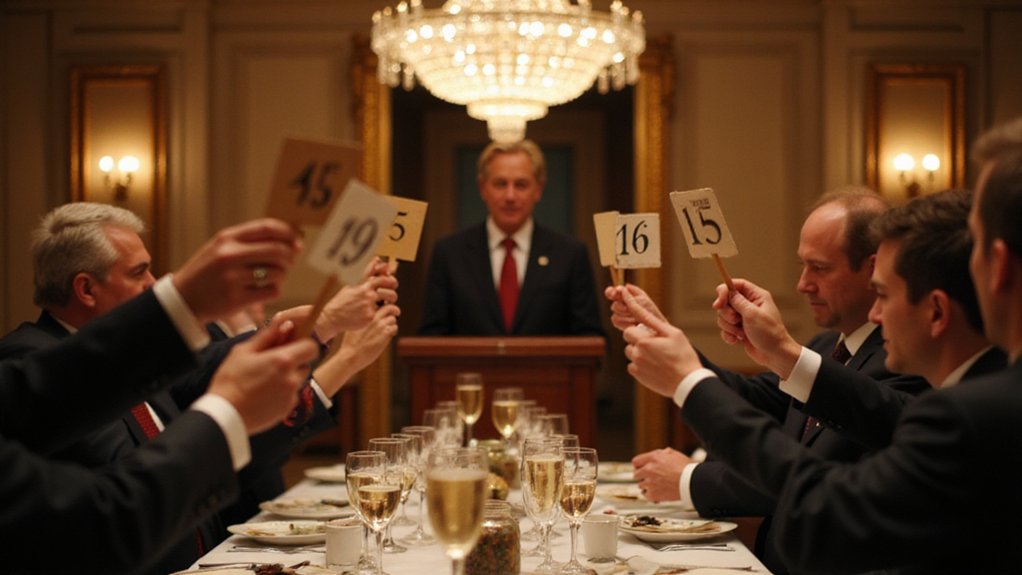The troubling tapestry of former President Trump‘s dining companions has emerged as yet another flashpoint in America’s increasingly polarized political landscape.
Recent controversial dinner engagements—notably with white supremacist Nick Fuentes and embattled artist Ye at Mar-a-Lago—have catalyzed renewed scrutiny of Trump’s judgment regarding his associates and the potential leveraging of his continued political influence.
These high-profile dining incidents represent merely the visible apex of a more systemic phenomenon wherein Trump properties have functioned as de facto access points to presidential influence.
The intermingling of Trump’s business interests with governmental affairs has manifested in over 3,700 documented conflicts of interest—a staggering portfolio of ethical breaches that would make even the most creative corporate governance attorney blanch.¹
His establishment of a Strategic Bitcoin Reserve via executive order aims to position the U.S. as a digital asset leader while potentially benefiting his personal crypto ventures.
Foreign government officials, recognizing the arbitrage opportunity presented by this unprecedented arrangement, frequented Trump properties with remarkable consistency, often securing White House meetings in temporal proximity to their patronage.
This quid pro quo dynamic—while perhaps falling short of technical illegality—stretches the constitutional fabric regarding emoluments to its breaking point.
The economic calculus proves embarrassingly transparent: special interest groups and foreign entities effectively monetized access through property patronage, circumventing traditional diplomatic channels.
Throughout his presidency, Trump hosted eight heads of state at Mar-a-Lago, further blurring the lines between diplomatic protocol and personal business interests.
His latest initiative promises a gala dinner with top 220 investors who purchased his memecoin, raising serious concerns about foreign influence through digital transactions.
When Ye announced his presidential aspirations mere days after dining with Trump, the political implications crystallized further, suggesting these engagements transcend mere social courtesy.
Trump’s subsequent attempts to distance himself from controversial dinner guests (“I knew nothing about him”) ring particularly hollow given his well-documented pattern of leveraging his properties for official functions—recall his Doral resort promotion for the G-7 summit, an arrangement that would have effectively converted international diplomacy into a marketing opportunity.
The resulting public outcry spans the ideological spectrum, with concerns ranging from national security implications to fundamental questions about the separation of personal financial interests from presidential authority.
In the ledger of presidential propriety, these dining controversies represent a particularly concerning depreciation of ethical capital.






